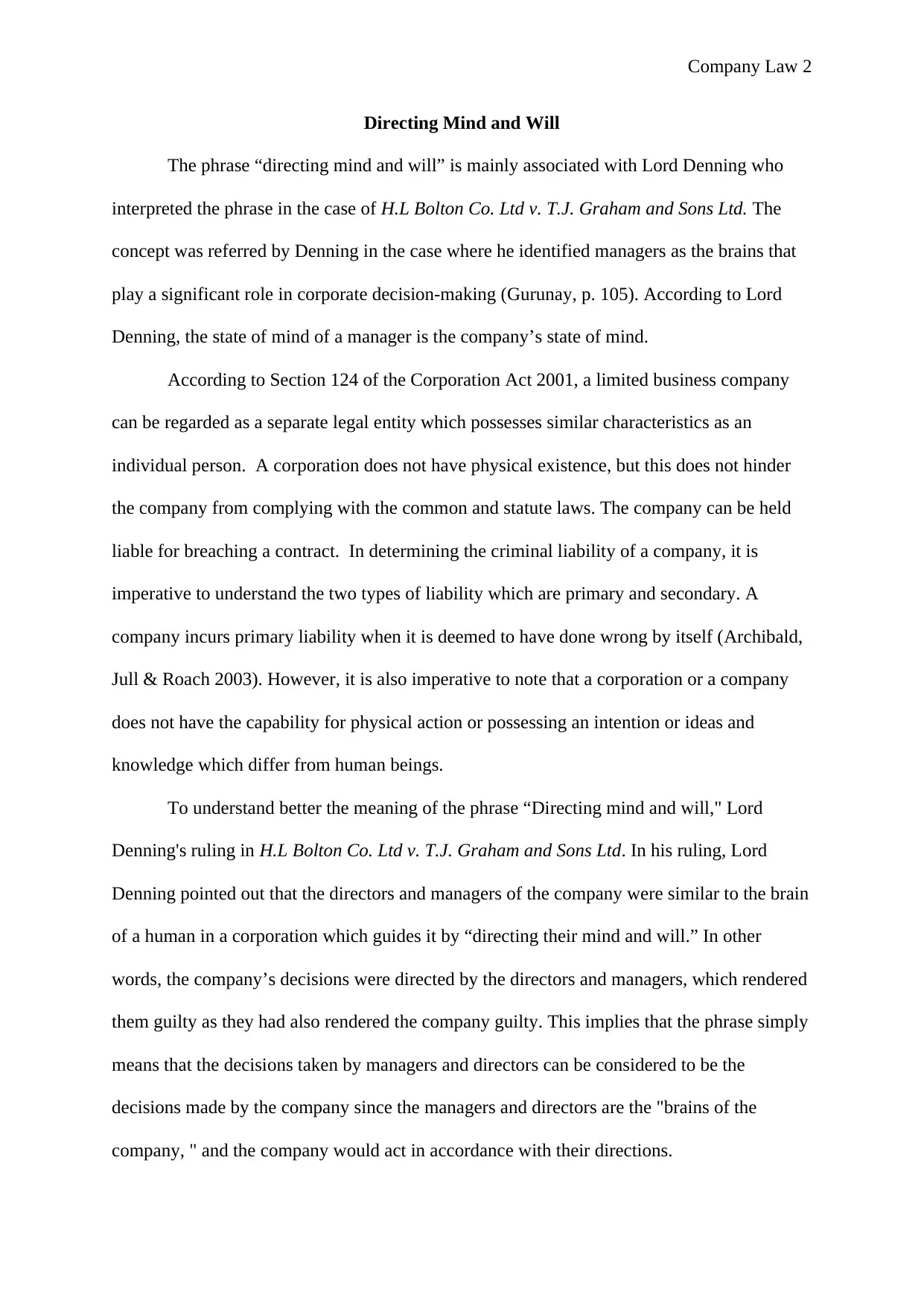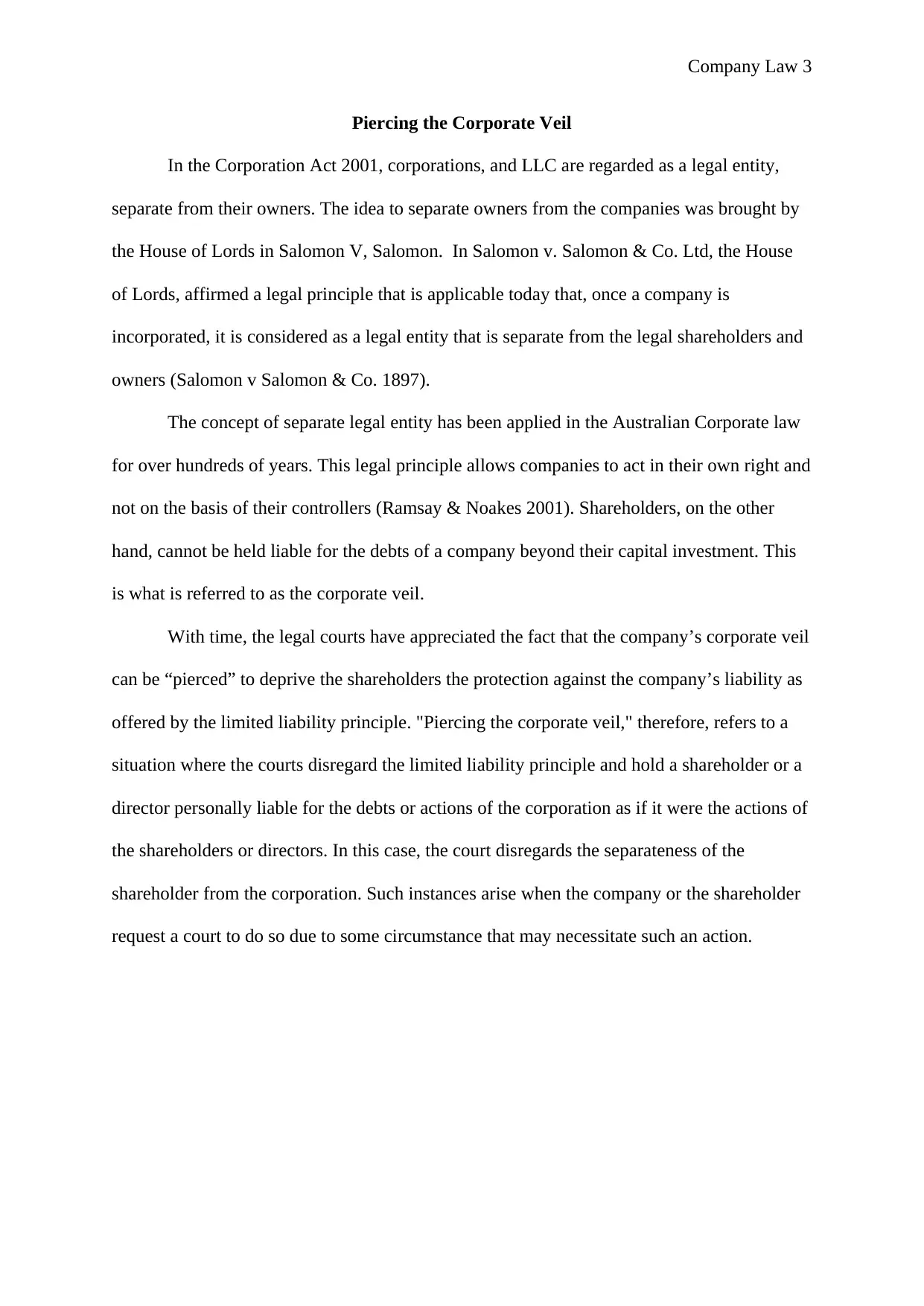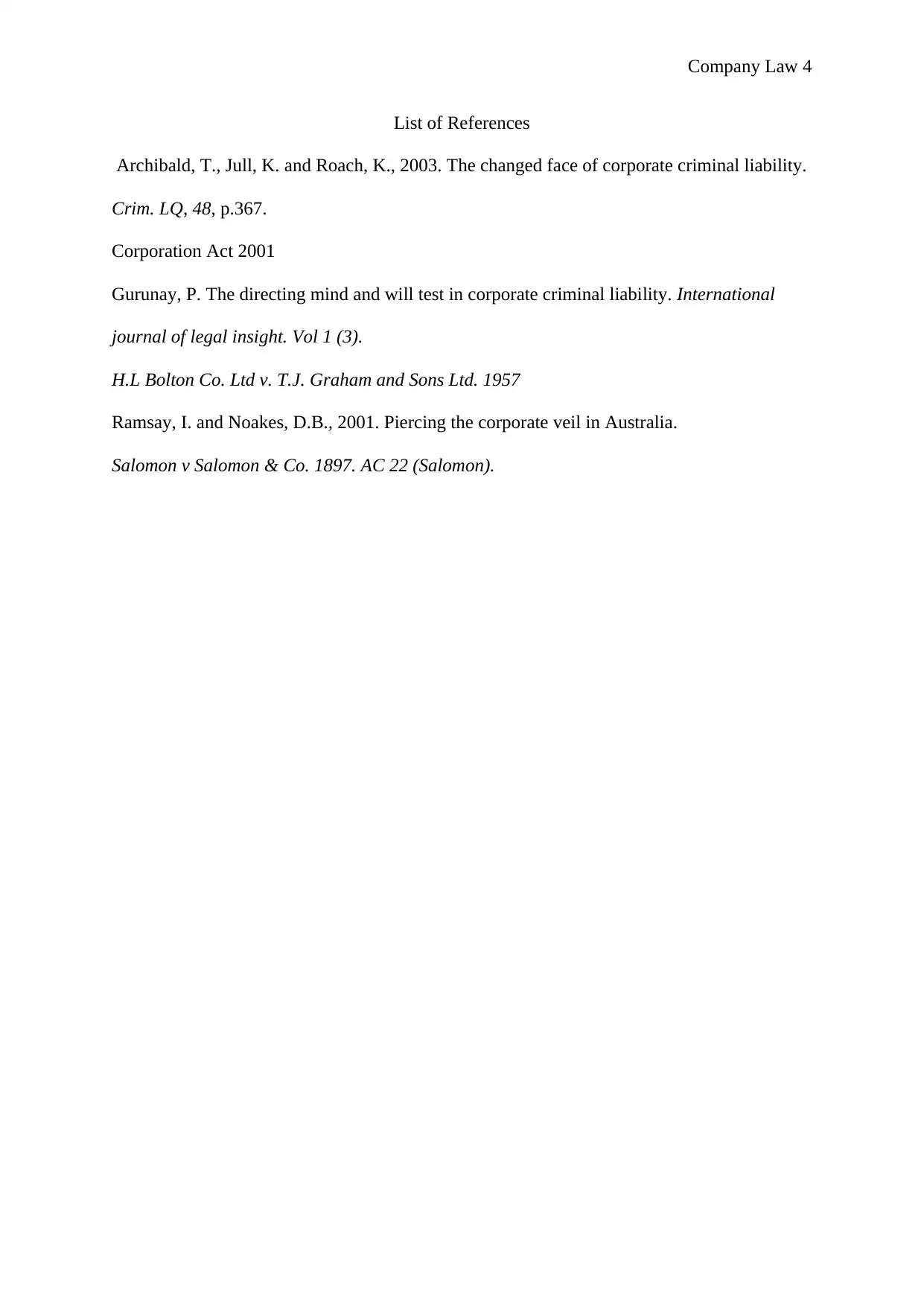Company Law: Directing Mind and Will & Piercing the Corporate Veil
VerifiedAdded on 2019/10/31
|4
|814
|330
Report
AI Summary
This report provides a comprehensive overview of two fundamental concepts in company law: the 'directing mind and will' and 'piercing the corporate veil.' It begins by explaining the 'directing mind and will' concept, primarily associated with Lord Denning's interpretation in H.L Bolton Co. Ltd v. T.J. Graham and Sons Ltd, where the managers' state of mind is considered the company's state of mind. The report then delves into the legal status of a limited business company as a separate legal entity, as per the Corporation Act 2001, and discusses the implications of primary and secondary liabilities. The second part of the report focuses on 'piercing the corporate veil,' which refers to the courts disregarding the limited liability principle to hold shareholders or directors personally liable for the company's debts or actions. The report references the landmark case of Salomon v. Salomon & Co. Ltd, highlighting the principle of separate legal entity. The report concludes with a summary of the legal principles and their practical implications, offering a clear understanding of corporate liability and the circumstances under which the corporate veil can be pierced. The report is well-supported by references to relevant case laws and legal literature.
1 out of 4











![[object Object]](/_next/static/media/star-bottom.7253800d.svg)